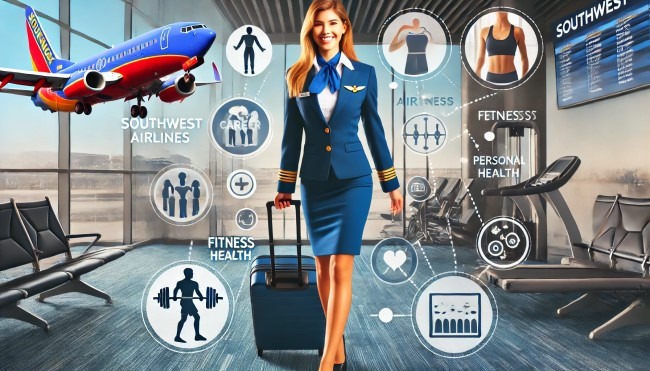Emily University of Mississippi Flight Attendant: A Journey from Education to the Skies
Discover how Emily, a University of Mississippi alumna, turned her dreams into reality by becoming a flight attendant. Explore her academic journey, career path, and the skills that shaped her success.

Emily, a graduate of the University of Mississippi, successfully transitioned into a rewarding career as a flight attendant. With a solid educational background and a passion for travel, she combined her academic achievements with the specialized training required to become a flight attendant. Her journey exemplifies how an education from a reputable institution like the University of Mississippi can pave the way for success in the aviation industry. Today, Emily enjoys a thriving career, demonstrating the importance of higher education in achieving career aspirations in dynamic fields such as aviation.
Introduction: Who is Emily and Why Her Story Matters
Emily, an alumna of the University of Mississippi, followed an unconventional path that led her to a career many people dream about: becoming a flight attendant. While many may assume that flight attendants come from specialized aviation schools or hospitality backgrounds, Emily’s story is a testament to the diverse educational paths that can lead to the skies.
Her journey, which began at one of the South’s most respected universities, is an inspirational account for anyone pursuing a career that blends customer service, international travel, and adventure. Through her unique story, we can explore the important role that a solid educational foundation plays, even in professions like a flight attendant, which at first glance may seem unrelated to academic excellence.
The University of Mississippi: Building Blocks for a Flight Attendant Career
The University of Mississippi, also known as Ole Miss, has long been a cornerstone of academic excellence in the South. From its esteemed faculty to its extensive course offerings, students like Emily have access to opportunities that go far beyond traditional classroom education. For Emily, the diverse set of skills she acquired—ranging from communication to problem-solving—helped set her apart when applying to airlines.
While not directly related to aviation, the courses Emily took in communication, psychology, and global studies provided her with a strong understanding of human interaction, cultural sensitivity, and problem-solving—key skills for any flight attendant. In many ways, the University of Mississippi prepared her for the real-world challenges she would face at 30,000 feet, where quick decision-making and excellent interpersonal skills are a must.
Skills Gained from the University of Mississippi that Helped in Flight Attendant Training
Many may wonder, what does a degree from the University of Mississippi have to do with being a flight attendant? In Emily’s case, it was everything. The airline industry, while service-oriented, demands professionals who are quick on their feet, capable of handling emergencies, and adept at managing diverse groups of people. These are skills that are nurtured in a university environment, especially at an institution like Ole Miss.
Here are some of the key skills Emily gained from her university experience that have been crucial in her career as a flight attendant:
- Communication Skills: Whether communicating with professors, presenting group projects, or participating in campus activities, Emily honed her ability to communicate clearly and confidently.
- Problem-Solving: From research assignments to critical thinking tasks, university life taught Emily how to approach problems logically, a skill she now uses when dealing with in-flight issues.
- Cultural Awareness: Through courses in global studies and participating in various student organizations, Emily developed a deep understanding of different cultures—a crucial trait when dealing with international passengers.
- Stress Management: University life, with its deadlines, projects, and exams, equipped Emily with the ability to manage stress, a skill essential for flight attendants who often deal with high-pressure situations.
The Transition: From Graduation to Flight Attendant Training
After graduating from the University of Mississippi, Emily didn’t immediately land in the aviation industry. Like many graduates, she spent some time exploring her career options. Eventually, her love for travel and interacting with people led her to apply for a flight attendant position at a major airline. Her education helped her stand out in a competitive field.
Flight attendant training is notoriously rigorous, requiring candidates to learn safety protocols, emergency procedures, and customer service skills. However, Emily’s university background gave her an edge. Thanks to her time at Ole Miss, she was already adept at handling stressful situations and engaging with people from all walks of life, making her transition into flight attendant training smoother than many of her peers.
A Day in the Life of Emily as a Flight Attendant
What does a typical day look like for Emily, now a seasoned flight attendant? Her day starts well before the passengers board the plane. After arriving at the airport, she attends a briefing with the flight crew to discuss the day’s flight, weather conditions, and any special requirements. Once onboard, she prepares the cabin, checks emergency equipment, and ensures that all safety protocols are in place.
During the flight, Emily’s duties extend beyond serving food and drinks. She is responsible for the safety and well-being of passengers, ensuring that everyone complies with safety regulations, dealing with medical emergencies if they arise, and managing any interpersonal conflicts that may occur between passengers. For Emily, every day is different, and that’s one of the aspects she loves most about her job.
Despite the long hours and the challenges that come with flying across multiple time zones, Emily thrives in her role. Her time at the University of Mississippi equipped her with the adaptability and resilience necessary to succeed in such a dynamic environment.
Why Education Matters for Flight Attendants
Emily’s story is a powerful reminder that education plays a critical role in shaping a flight attendant’s career. While airlines do not typically require a degree for flight attendants, the skills gained from higher education—such as communication, problem-solving, and teamwork—are invaluable. These are the skills that help flight attendants succeed not only in delivering excellent customer service but also in handling in-flight emergencies and ensuring the safety of passengers.
In addition, the global nature of air travel means that flight attendants must be able to interact with passengers from diverse cultural backgrounds. Universities like the University of Mississippi provide students with the opportunity to develop cultural competence, which is critical in the aviation industry. This is especially important for international flights, where flight attendants like Emily must be sensitive to the needs and customs of passengers from various countries.
Emily’s Tips for Aspiring Flight Attendants
For those looking to follow in Emily’s footsteps, here are some tips to prepare for a career as a flight attendant:
Focus on Communication Skills: The ability to communicate effectively is essential in both customer service and emergency situations. Take every opportunity to develop strong communication skills, whether through classes, internships, or extracurricular activities.
Cultural Awareness Is Key: Flight attendants often deal with passengers from diverse backgrounds. A strong understanding of different cultures will help you provide better service and handle situations with grace.
Stay Calm Under Pressure: Working in aviation is exciting but can also be stressful. Whether it’s dealing with a difficult passenger or handling a mid-flight emergency, being able to stay calm and think clearly under pressure is critical.
Prepare for a Rigorous Training Process: Flight attendant training is no walk in the park. Be prepared for an intense program that will test both your physical and mental capabilities. A background in education will help you navigate this challenging phase.
Never Stop Learning: The aviation industry is constantly evolving. Whether it’s new safety protocols or changes in customer service practices, staying updated on industry trends will make you a better flight attendant.
Conclusion: Emily’s Success Story as a Flight Attendant
Emily’s journey from the University of Mississippi to a fulfilling career as a flight attendant demonstrates the value of a well-rounded education. While her degree didn’t directly relate to aviation, the skills she developed during her time at Ole Miss were integral to her success in the field. Her story serves as an inspiration for anyone aspiring to a career in the skies, showing that with the right skills and determination, it’s possible to turn your dreams of travel and adventure into reality.
By leveraging her education, Emily has not only built a successful career but also exemplified the importance of a strong educational foundation in non-traditional fields like aviation. As she continues to soar through the skies, her story remains a beacon for anyone looking to take flight in their own careers.



